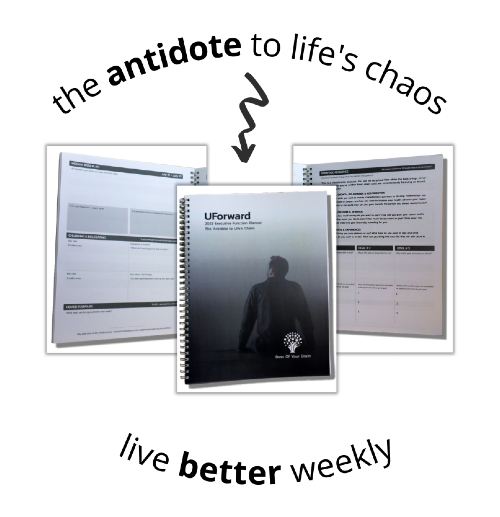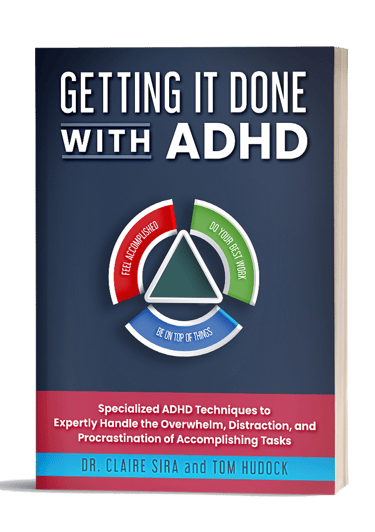Guide to Treating ADHD in Adults: Empowerment and Strategies for Success
Hey there! Welcome to this comprehensive guide on ADHD in adults.
If you or someone you know is living with ADHD, you've come to the right place. As an experienced ADHD coach partnered with a psychologist (Dr. Claire Sira), I'm excited to share my knowledge with you and provide valuable insights into the world of ADHD treatment. Over the past 15 years, I have delved deep into understanding ADHD inside and out, and I'm passionate about empowering those with ADHD to lead fulfilling lives.
So, let's get started on this journey of discovery and empowerment!


Gender
Skills
Medication
CBT
Executive Function
Self Regulation
Mindfulness
Combining
Chapters
Tom Hudock, co-founder of ADHD For Life
Understanding ADHD and Gender
Before we dive into the methods of treatment, it's essential to understand how ADHD can manifest differently in individuals who are born male versus female. While all genders can experience ADHD symptoms, they may present in distinct ways. In individuals who are born as male, hyperactivity is often more pronounced, leading to restlessness and impulsivity. On the other hand, individuals who were born as female may not display the same level of hyperactivity but can face challenges with inattention and executive function, including difficulties with planning, organizing, and time management.
It's worth noting that ADHD can be easily overlooked or misdiagnosed in females due to their less overt symptoms. This can lead to years of untreated ADHD and result in struggles with self-esteem, relationships, and career goals. Recognizing the unique ways ADHD can manifest in different genders is a crucial step in providing effective treatment.


The Role of Medication: A Tool, Not a Cure
One common approach to treating ADHD in adults is through the use of medications or supplements. Medication can be a powerful tool in managing ADHD symptoms, especially concerning improved focus and reduced impulsivity. Stimulants, such as methylphenidate and amphetamines, are commonly prescribed and have shown effectiveness in many cases. Supplements, such as Omega 3s found in fish oil, have also shown effectiveness for ADHD symptoms.
However, it's essential to view medication as one piece of the treatment puzzle, not a cure for ADHD. Medication can alleviate distractibility and impulsivity symptoms and it can create a more manageable starting point. However, it doesn't address the executive function deficits associated with ADHD. After taking stimulant medication for a while, sometimes people need to take more medication to get the same effect, as it does not provide long-term coping strategies. Moreover, not everyone with ADHD responds well to prescribed medication or they may experience side effects that make it less suitable for them.
As such, a holistic approach to ADHD treatment is crucial, incorporating various strategies to empower individuals with ADHD to actively manage their symptoms and thrive.


Learning Skills to Manage ADHD Traits
To effectively treat ADHD in adults, it's vital to focus on developing skills and strategies that help manage ADHD traits on a daily basis. One of the most effective therapeutic approaches for ADHD is Cognitive Behavioral Therapy (CBT). CBT is a goal-oriented and practical form of therapy that helps individuals identify and change negative thought patterns and behaviors.
Through CBT, individuals can work on challenges related to procrastination, overwhelm, self limiting beliefs, emotional regulation, and low self-esteem. By learning and applying these practical skills, adults with ADHD can better navigate their daily lives and move towards their personal and professional goals.


The Power of CBT for ADHD Treatment
Cognitive Behavioral Therapy (CBT) is often regarded as one of the best therapies for adults with ADHD. It builds awareness of internal chatter, and its structured and goal-oriented nature makes it an ideal fit for addressing the challenges posed by ADHD symptoms.
One common CBT technique used in ADHD treatment is the "ABCDE" method:
Beliefs
Identify the beliefs or thoughts associated with the activating event. These beliefs can be positive, negative, or neutral. In the case of the work deadline, the belief might be, "I'll never finish this project on time; I'm such a failure."
Consequences
Understand the consequences of holding onto these beliefs. Negative beliefs can lead to heightened stress, lowered self-esteem, and avoidance of tasks.
Disputation
Challenge the negative beliefs by providing evidence to the contrary. Look for instances where you have succeeded in the past or seek support from colleagues to help complete the project.
Activating Events
Recognize the events or situations that trigger specific emotions or reactions. For example, a deadline at work might trigger feelings of overwhelm or anxiety.
Effects
Observe the new effects that result from disputing the negative beliefs. With a more accurate and realistic appraisal of the situation and a more positive mindset, you might find yourself feeling more confident and capable of tackling the task at hand.
By practicing CBT techniques, individuals with ADHD can develop a more positive and resilient mindset, leading to better self-management, improved goal achievement, and improved overall well-being.
Executive Function Coaching for ADHD
Another powerful approach to treating ADHD is through Executive Function Coaching. As an ADHD coach, I have witnessed incredible transformations in individuals who have received this type of coaching.
Executive Function Coaching is a personalized form of coaching that focuses on improving specific skills related to executive function deficits commonly experienced by individuals with ADHD. These deficits can include challenges with time management, planning, organization, and setting and achieving goals.


Working with an executive function coach can be life-changing for adults with ADHD. Coaches collaborate with their clients to identify specific areas of struggle and co-create strategies to address those challenges. These strategies can include recognizing risky times and triggers for impulsive behaviours to put preventative measures in place, breaking tasks into smaller steps, setting reminders and timers, and creating structured routines.
The beauty of executive function coaching lies in its individualized and tailored approach. Each coaching session is designed to cater to the unique needs and strengths of the individual, allowing for more focused and effective progress.
Self-Regulation Coaching: Harnessing Emotional Balance
Self-regulation is a crucial skill for individuals with ADHD. It involves recognizing emotions, impulses, and reactions, and learning how to respond in a controlled and intentional manner. For those with ADHD, emotional dysregulation can be particularly challenging, leading to difficulties in relationships and decision-making.
Self-regulation coaching (relationships) can provide invaluable support in developing this skill. Coaches work with clients to identify emotional triggers and implement strategies to manage and channel emotions more effectively. By improving emotional regulation, individuals with ADHD can reduce stress and impulsivity, leading to more positive interactions with others and improved focus.
Coaches may use techniques such as mindfulness practices, breathing exercises, and cognitive restructuring to help clients gain better control over their emotions. With self-regulation coaching, adults with ADHD can develop emotional intelligence, leading to increased self-awareness and healthier coping mechanisms.


When Mindfulness Is Too Much
Mindfulness is a powerful treatment approach for individuals with ADHD. Mindfulness involves being fully present and aware of the present moment without judgment. Practicing mindfulness builds attentional control, which can help reduce stress, reduce distractibility, and improve emotional regulation in adults with ADHD.
However, sitting in mindful meditation is often very difficult for adults with ADHD! For adults who aren’t ready for meditation, mindful movement, such as yoga or tai chi, combines physical activity with mindfulness principles. Engaging in mindful movement can enhance body awareness, promote relaxation, and improve overall well-being. It can also help individuals with ADHD develop better focus and concentration while experiencing a sense of inner calm.
Incorporating mindfulness and mindful movement into an ADHD treatment plan can complement other strategies, such as coaching and cognitive-behavioral therapy. By cultivating mindfulness, individuals can better manage distractions, develop resilience, and harness their strengths to navigate life's challenges with greater ease and presence.


Combining Treatment Approaches for Optimal Results
When it comes to treating ADHD in adults, there is no one-size-fits-all approach. Combining different treatment methods can often yield the best results. For example, an individual might benefit from a combination of medication, CBT, executive function coaching, and self-regulation coaching.
This comprehensive approach addresses the various aspects of ADHD and provides a multifaceted toolkit for managing symptoms and challenges. Additionally, joining online communities and support groups for individuals with ADHD can be incredibly beneficial. These communities offer a safe space to share experiences, exchange advice, and receive encouragement from peers who understand what it's like to live with ADHD.


Conclusion: Empowering Lives with ADHD
In conclusion, treating ADHD in adults is all about empowerment and discovering the strategies that work best for each individual. While medication can be a valuable tool, it's crucial to combine it with skill-building techniques such as CBT, executive function coaching, and self-regulation coaching for long term improvements.
Remember that ADHD is not a failure of character. It is a unique aspect of a person’s brain. With the right tools and support, adults with ADHD can embrace their strengths and talents, leading to a fulfilling and successful life. Seeking guidance from an ADHD coach or therapist can make a significant difference in the ADHD journey, providing personalized strategies to help thrive.
Here's a recap of some key takeaways from this guide:


Gender
Skills
Medication
CBT
Executive Function
Self Regulation
Mindfulness
Combining
Chapters
Recognize Gender Differences:
Understand that ADHD can present differently in the different genders. Be aware of the unique challenges faced by individuals who were born female as ADHD is more likely to have been missed in childhood.
Medication as a Piece of the Puzzle:
View medication as a tool to manage symptoms, but remember that it's not a cure. Combine medication with other treatment approaches for comprehensive and lasting support.
Learn CBT Techniques: Cognitive Behavioral Therapy (CBT) can be a game-changer for individuals with ADHD. Challenge negative thought patterns, reframe beliefs, and implement practical strategies to navigate challenges effectively.
Harness the Power of Coaching:
Consider working with an executive function coach or self-regulation coach to address specific areas of difficulty and develop personalized strategies for success.
Join Supportive Communities:
Engage with moderated or curated online communities and support groups for individuals with ADHD. Sharing experiences and advice can provide valuable insights and a sense of belonging.
Embrace Your Unique Strengths:
Recognize that ADHD can bring forth adaptability, creativity, hyperfocus, and unique problem-solving abilities. Embrace these strengths and use them to your advantage.
Be Patient and Kind to Yourself:
Treating ADHD is a journey that requires time, effort, and self-compassion. If you are on this journey, celebrate your progress and be gentle with yourself during challenging times.
As you embark on your ADHD treatment journey, remember that it's okay to seek help and support. Empowerment comes from recognizing your strengths, acknowledging your challenges, and taking proactive steps toward personal growth.
In addition to seeking professional help, consider using tools like our Getting It Done with ADHD book (Amazon Canada and US) and UForward Planner specially designed for adults with ADHD. These resources can complement your treatment plan and serve as valuable guides on your path to success.
Always remember, there's no one right way to treat ADHD. Each person's journey is unique, and what works for one individual may not work for another. It's essential to stay open to trying different approaches until you find the ones that resonate with you and lead to positive changes.
Keep in mind that treating ADHD is not about erasing or fixing who you are. It's about discovering your true potential and finding the strategies that allow you to thrive in a world that may not always understand fully ADHD.
I'm thrilled that you've taken the time to learn about treating ADHD in adults. Your commitment to understanding and empowering yourself or someone you care about with ADHD is commendable. By embracing your strengths, utilizing effective treatment methods, and building a supportive network, I hope you can create a life filled with accomplishments and joy.
Tom Hudock, co-founder ADHD For Life
You are not alone on this journey. With the right tools, knowledge, and support, I believe that adults with ADHD can overcome challenges, unlock their true potential, and lead meaningful and fulfilling lives. Now, armed with this knowledge, you can take that first step toward empowerment and embark on this transformative journey!
If you have any questions or need further guidance, don't hesitate to reach out to our online community @ The ADHD Hub. We're here to support you every step of the way.
Wishing you success, happiness, and a future filled with boundless possibilities!
Who are Dr. Claire Sira and Tom Hudock?
Over the past 10 years, Dr. Claire and Tom have coached individuals and groups for ADHD, authored books, and created software called HyperFocus that helps doctors effectively assess ADHD. We equip adults with the skills and awareness for taking on ADHD challenges.
132-328 Wale Rd,
Colwood, BC V9B 0J8
(c) 2025 ADHD For Life Productions Inc.
Privacy Policy | Terms and Conditions
Connect with Dr. Claire Sira and Tom Hudock on Social Media:






